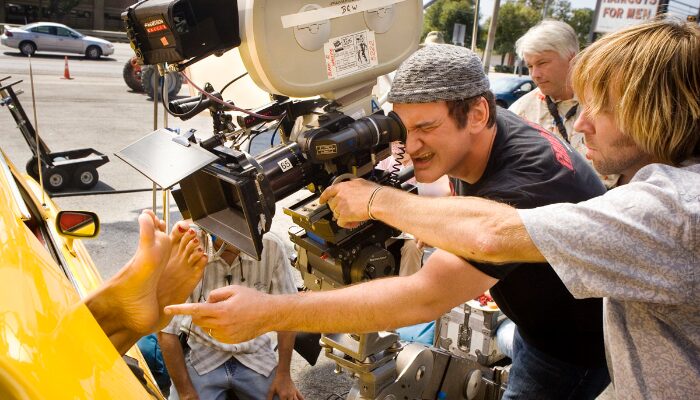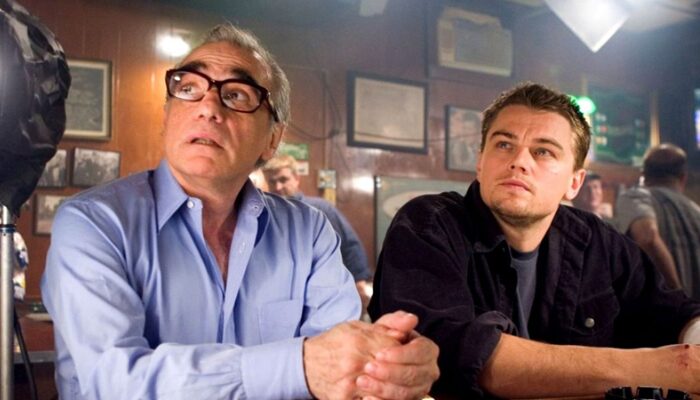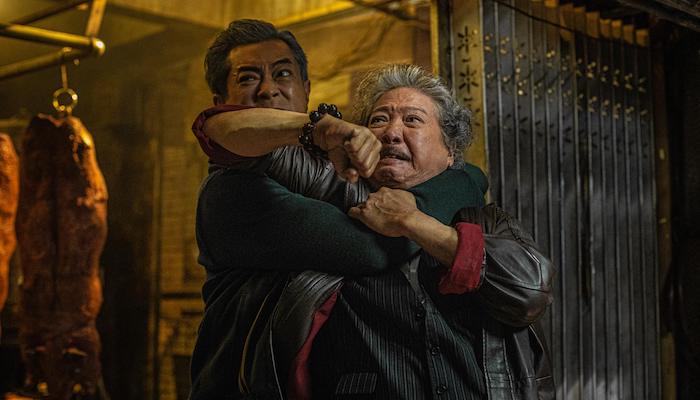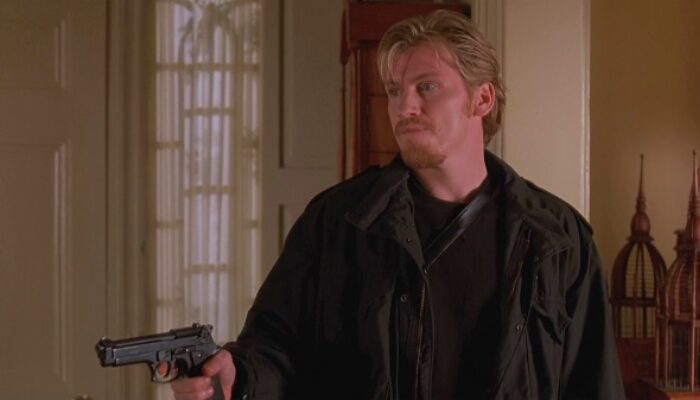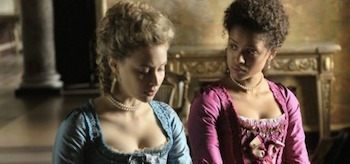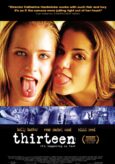Film Review: BELLE (2013): An Examination of Women, Slavery, & Society
Belle (2013) Film Review, a movie directed by Amma Asante, and starring Gugu Mbatha-Raw, Matthew Goode, Emily Watson, Lasco Atkins, Tom Felton, Sarah Gadon, Matthew Goode, Barrie Martin, Alan McKenna, and James Northcote.
It all started with a portrait. While touring Scone Palace at the University of St. Andrews in Scotland, screenwriter Misan Sagay (Their Eyes Were Watching God), viewed a painting of two beautiful, young, aristocratic women: one woman smiles impishly, while the other casually takes her companion’s arm. What makes this 18th-century portrait so unusual however, is that one of the women is white and the other is black.
After some enormous research, Sagay discovered the two girls in the painting were cousins by blood, sisters by heart. They were Elisabeth Murray (Sarah Gadon) and Dido Belle (Gugu Mbatha-Raw). Dido Belle was born to a black mother who was a slave until Captain Sir John Lindsay (Matthew Goode) brought her to the West Indies. There, they fell in love and had an illegitimate daughter, Dido Belle.
The movie begins just after Dido Belle’s mother dies and Sir John decides to take Dido to England to be raised by his aristocratic family. It was the late 1700s however, and slavery was still legal in England. In fact, the English economy relied heavily on the slave trade and racial prejudices ran deep.
At first, Dido’s aunt and uncle, Lord and Lady Mansfield (Tom Wilkinson and Emily Watson), object to raising the mixed-race girl alongside their other niece, Elisabeth. But soon they come to love the little girl as their own and raise her with most of the same privileges as her fully white cousin. Dido’s not allowed to dine with guests and is mostly kept hidden from the outside world to spare the family name from ridicule. These trying contradictions make for Dido’s early education in the cruel hypocrisy of the upper class.
When Dido’s father dies, he leaves her a handsome inheritance, while her white cousin Elizabeth has no dowry of her own, making marriage quite complicated for both women.
Despite her illegitimate status, Dido’s money causes one penniless aristocrat to propose marriage, but it’s John Daviner (Sam Reid), a law student, preoccupied with abolition, who really wins Dido’s heart.
Gugu Mbatha-Raw is outstanding as Dido, able to access complicated emotions that ultimately lead her on a journey of true courage. A lesser actress could have made Dido seemed entitled or insignificant. But Mbatha-Raw tackles the role with delicate exertion, carefully pushing through the contradicting dalliances of high society to find a deeper, meaningful existence.
The screenwriter cleverly sets Dido’s remarkable story against the Zong slave ship trial, over which Lord Mansfield is to rule. This true-life tragedy at sea centers on 142 diseased slaves who were thrown overboard so their owner could collect the insurance money.
Tom Wilkinson plays Lord Mansfield as a man struggling with transcendental matters, knowing the weight of his legal decisions that will affect not only his family but the entire nation of England.
This movie is a first, dealing with a woman’s unusual circumstance, the horrors of slavery and the slow shift in social consciousness that led to England’s abolition of slavery 32 years before the United States.
It is interesting that between 2012 and 2014, slavery has been the subject of several high profile films, with both Lincoln and Django Unchained being nominated for the Best Picture Oscar, followed by 12 Years a Slave recently winning the category. But those aren’t the only ones. Cuba Gooding, Jr. stars in The Book of Negroes and Nicholas Pinnock in The Keeping Room, both set in antebellum South, both to be released later this year. America seems finally ready to examine one of the darkest parts of her history in the truly American art form of film.
Rating: 8/10
Leave thoughts on this review below in the comments section. For more Belle photos, videos, and information, visit our Belle Page, subscribe to us by Email, “follow” us on Twitter, Tumblr, or “like”us on Facebook.
Related Articles
FilmBook's Newsletter
Subscribe to FilmBook’s Daily Newsletter for the latest news!

